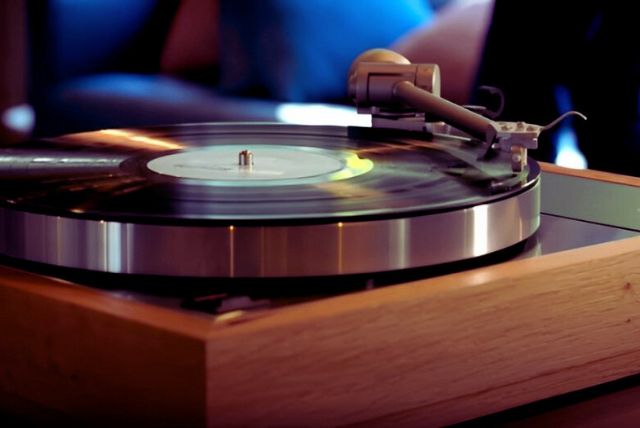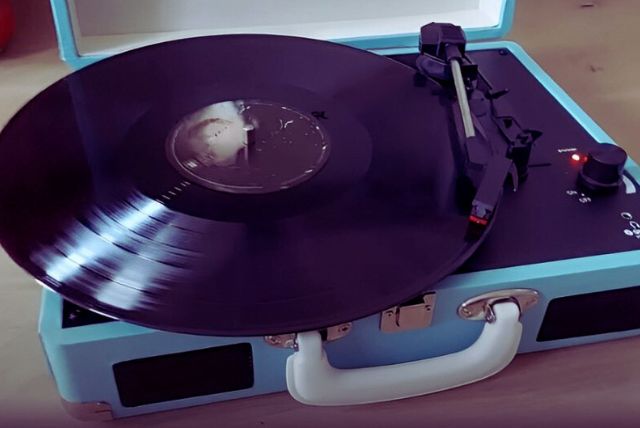I met a guy at a vinyl auction event. We were seated next to each other. When the event ended, he came to me and introduced himself. We had a conversation for a while, and he told me how excited he was to start collecting vinyl records. But he was confused what was the difference between a record player vs turntable and which one he should purchase.
My advice for him was that if he wants to be a serious audiophile in the future, he should go for a turntable, as it offers a much better sound experience and is easy to customize with top-notch speakers. If he wants everything built in and is okay with decent sound quality, he can purchase a record player.
He was surprised to know the difference between the two devices as both have their own set of characterstics.
And if you have the same question as him, today is your lucky day! I am going to share the same piece of information but in detail on how they are different. So, stay tuned!
Here is a quick difference for you to understand both audio devices better.
| Turntable | Record Player | |
| Additional components | Needs additional components to play music such as speakers and phono pre-amp. | Everything is built-in to play music right away. |
| Audio | Better audio quality | Decent audio quality |
| Customization option | It Can be customized with better components | No room for customization |
| Setup | Difficult to setup | Easy to setup |
| Cost | Expensive | More budget friendly |
What exactly is a turntable?
A turntable is a device that has a platter that rotates the vinyl record, a tonearm that aligns the stylus or needle with the record grooves, and a phono cartridge that converts the vibrations from the stylus into audible electrical signals.
A turntable requires additional components such as a phono pre-amp, amplifier, and external speakers to produce sound. It may sound like too many components just to produce music. But hey, this level of customization is the secret to its ability to provide an excellent audio experience, and this makes it the first choice of vinyl enthusiasts.

Advantages of turntable
Customization
The turntables allow you to customize the setup and add additional high-end components according to your needs. Every audiophile wants to have an audio device that can be easily customized.
Better Audio experience
Due to the freedom to choose additional high-quality components, turntables can provide a much better and richer audio experience.
Flexible to upgrade
The turntable provides the flexibility to upgrade your audio setup over time. Imagine the freedom of buying and connecting a new set of speakers to your turntable. How cool is that?
Disadvantages of turntable
Additional components needed
Like every electronic device, turntables have some limitations. They require you to purchase additional components, like a pre-amp or speakers, to create sound, eventually increasing your audio setup cost.
Difficult to setup
Putting together a turntable setup might take longer and can be difficult for some people compared to just using an all-in-one record player.
What exactly a record player is?
A record player is an audio device that has everything built in, such as a pre-amp, amplifier, and speakers. It is best for someone who is looking for something easy to set up and does not require any additional components to play music.

Advantages of record player
No additional components required
A record player does not require additional components like speakers or amplifiers. It has everything built in. All you need to do is place the record on the platter, and it will play music for you right away.
Easy to use
Record players are much easier to use and provide you with the ease to plug, play, and listen to music.
Budget Friendly
They are much more cost-effective than turntables, as they save you the hassle of purchasing additional components.
Disadvantages of a record player
Average audio quality
While there are record players that provide a decent sound experience, they are still no match to what a high-end turntable setup can produce.
Limited scope for customization
The options to customize a record player are very limited. If you are seeking a much more advanced customizable setup, a record player is not the best fit for you.
Turntable vs record player: How both are different?
To get a clearer picture of how turntables are different from record players, we consider different aspects such as design, functionality, audio quality, and cost.
Sound Quality
Turntables have better sound quality because they allow you to connect better speakers and amplifiers, which changes the whole audio experience. While there are record players with pretty decent sound quality, they’re still no match for a turntable.
If you want a setup that provides a much richer sound experience, a turntable is for you. If you are okay with decent sound but don’t want the pain of purchasing additional devices, the record player is for you.
Aesthetics and Functionality
Another noticeable difference between the two is their design. The turntables are much more elegant and have an aesthetic design that includes what’s necessary for playing vinyl records. This makes them the ideal choice for music enthusiasts who want a much more customizable setup by allowing them to easily add components like a top-notch speaker or a high-end amplifier.
Record players, on the other hand, are much more compact, have everything built-in (speakers and phono-preamp), and are made with the user’s convenience in mind.
Must Read: To know more about the different record player parts.
Cost
Turntables are much costlier than record players due to their aesthetic design, customization capability, and better sound quality. Not to mention the cost of additional components such as speakers, pre-amps, and amplifiers that need to be purchased to create a whole music setup.
If you are on a budget and an occasional vinyl listener, then a record player is the best option for you.
Which one is best for you?
If you are an audiophile who cannot compromise on sound, wants a much more advanced setup, and price is not a constraint, a good turntable is what you should seek. The agility to customize the whole setup is what makes a turntable an amazing audio device.
On the other hand, if you only listen to your vinyl collection on certain occasions, want to keep it within budget, and need something that is easy to set up, the record player is the ideal choice for you. Of course, the audio quality won’t be on par with a turntable, but it would still be decent enough to let you enjoy your favorite records.
Final beat
It’s clear to you now the actual difference between a turntable and a record player. A turntable specifically is a device that only spins record and doesn’t come with speakers or other components, while a record player has everything built-in, including what a turntable offers.
So, the next time a friend or colleague asks you the same question, you already know the answer!
Frequently Asked Questions
Q. Why are turntables so expensive?
The cost of turntables is usually higher than that of record players due to the quality of components used in building them, the design aesthetics, and the top-notch audio experience they can provide users.
Q. What are the two types of turntables?
Belt-drive and direct drive are the two types of turntables. In a belt-drive turntable, a belt is used to rotate the platter via the turntable motor, while in a direct-drive turntable, the motor is directly placed under the platter.
You can read more about the two types here.
Q: Can a turntable be used as a record player?
A turntable is just one component of the entire turntable setup and needs additional components such as a preamp, amplifier and speakers to output sound whereas a record player on the other hand already has all these built-in.
Hence, you cannot use a turntable as a record player.
Q: What is the advantage of a turntable?
Besides customization and upgradability, sound quality is the biggest advantage of a turntable over a record player.



I always thought they both were same lol.
I know it can be confusing at times, but they both are different. 😀